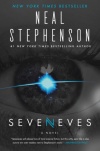Mark Dominus (陶敏修)
mjd@pobox.com

Archive:
| 2025: | JFMAMJ |
| JAS | |
| 2024: | JFMAMJ |
| JASOND | |
| 2023: | JFMAMJ |
| JASOND | |
| 2022: | JFMAMJ |
| JASOND | |
| 2021: | JFMAMJ |
| JASOND | |
| 2020: | JFMAMJ |
| JASOND | |
| 2019: | JFMAMJ |
| JASOND | |
| 2018: | JFMAMJ |
| JASOND | |
| 2017: | JFMAMJ |
| JASOND | |
| 2016: | JFMAMJ |
| JASOND | |
| 2015: | JFMAMJ |
| JASOND | |
| 2014: | JFMAMJ |
| JASOND | |
| 2013: | JFMAMJ |
| JASOND | |
| 2012: | JFMAMJ |
| JASOND | |
| 2011: | JFMAMJ |
| JASOND | |
| 2010: | JFMAMJ |
| JASOND | |
| 2009: | JFMAMJ |
| JASOND | |
| 2008: | JFMAMJ |
| JASOND | |
| 2007: | JFMAMJ |
| JASOND | |
| 2006: | JFMAMJ |
| JASOND | |
| 2005: | OND |
Subtopics:
| Mathematics | 245 |
| Programming | 99 |
| Language | 95 |
| Miscellaneous | 75 |
| Book | 50 |
| Tech | 49 |
| Etymology | 35 |
| Haskell | 33 |
| Oops | 30 |
| Unix | 27 |
| Cosmic Call | 25 |
| Math SE | 25 |
| Law | 22 |
| Physics | 21 |
| Perl | 17 |
| Biology | 16 |
| Brain | 15 |
| Calendar | 15 |
| Food | 15 |
Comments disabled
Fri, 28 Jul 2017
Neal Stephenson's Seveneves is very fat, so I bought it to read on a long trip this summer. I have mixed feelings about Stephenson, but there are a lot of things I like about his writing. A few years ago I wrote a long review of his “Baroque Cycle” in which I said:
People have been complaining for years that Stephenson's books are "too long". But it seems to me now that the real problem with his earlier books is that they were not long enough.
I am a fan of short books. Usually, I agree with the opinion of Jorge Luis Borges, who said “Writing long books is a laborious and impoverishing act of foolishness: expanding in five hundred pages an idea that could be perfectly explained in a few minutes.”
But Stephenson, I think, is one of very few exceptions who does better writing longer books than shorter ones. I said:
Stephenson at 600 pages is a semi-coherent rambler; to really get what he is saying, you have to turn him up to 2,700 pages.
I was interested to see how that bore out in Seveneves. The good news: Stephenson has learned how to write a good 600-page book. The bad news: Seveneves is 900 pages long.
Seveneves is in three parts of roughly equal size. The first two parts deal with an astronomical catastrophe (never explained) that destroys the moon and renders the earth uninhabitable, and with the efforts of humans to establish a space habitat that will outlive the catastrophe. These first two parts told a story with a beginning and an end. They contain a lot of geeky details about the technical aspects of setting up a space habitat, which I enjoyed. I would gladly read any number of 600-page Stephenson books about space technology, an area in which he is an expert. I said ten years ago that his article Mother Earth, Mother Board about undersea telecommunications cables was brilliant. Ten years on, I'm giving it a promotion: it's one of the best nonfiction essays I've ever read on any topic. If you are one of the people who consider the mass of technical detail in Stephenson's novels to be tedious bloat, I think you probably don't want to read Seveneves. But then, if that's you, you probably gave up on Stephenson a long time ago.
Anyway, the first two parts begin with the destruction of the moon, and end with the establishment of the human space colony. Along the way there are many challenges faced by some fairly interesting characters. Had Stephenson stopped there, I think nobody would have complained.
I realized partway through that he was not going to stop there and I was excited. “Aha!” I said. “The book is in four parts! The first two will deal with the establishment of the colony, and then the last two will take place thousands of years in the future, and deal with the resettlement of Earth.” I was pleased with Stephenson's daring: So many writers would have written just the first two parts, and would not been confident enough to go on. Stephenson has many flaws, but an excess of caution is not one of them, and I was looking forward to parts 3 and 4.
Then something went terribly wrong: He wrote part 3, but not part 4.
At the end of part 2, Seveneves takes all the characters and the world of the first two parts, wipes the blackboard clean and starts over. Which would be fine, if what followed was complete and well-developed. But it is only 300 pages long and Stephenson has never been able to write a 300-page story; Stephenson at 300 pages is a blatherer. The 300 pages contains a lot of implausible-seeming stuff about future technology. In 2006 I said that while I loved his long descriptions of real technologies, I found his descriptions of fanciful technology vacuous:
When they're fictitious technologies and imaginary processes, it's just wankery, a powerful exercise of imagination for no real purpose. Well, maybe the idea will work, and maybe it won't, and it is necessarily too vague to really give you a clear idea of what is going on.
Much of the appeal was gone for me. I can enjoy 600 pages of talk about how people in the 21st century would construct the cheapest possible space habitat. I cannot tolerate that much material about how Stephenson imagines people in the 71st century might organize their flying cities.
And the plot is just awful. The new characters are one-dimensional, and they spend most of the third part literally doing nothing. They are assembled into a team of seven by a nebulous authority for some secret purpose; neither they nor we are told what it is. They go from place to place to investigate something or other, making several pointless stops and excursions and wondering, as I did, what was going on and when something was actually going to happen. Nothing happens for 250 pages, and then when finally something does happen there is not enough space left in the book to finish it up, and the novel ends in the air, as so many of Stephenson's novels do.
There were several ways this could have been fixed. The whole third part could have gotten the axe. Considered as a 600-page novel, I think the first two parts of Seveneves are excellent. I said before that “Stephenson at 600 pages is a semi-coherent rambler”. That is clearly no longer true.
Or the third part could have been delayed for a year or two, after Stephenson had first expanded it from 300 to 900 pages and then trimmed it back down to 600 pages. The resulting novel of the 71st century could have been published separately, or the first two parts of Seveneves could have been held back until it was ready; it doesn't matter. In some alternate universe he wrote that second novel and it could be have been really good, even great. The character development might have been better. The mysterious project organizers might have been revealed. We might have gotten some wonderful fish-out-of-water moments with Sonar Taxlaw. (Sonar Taxlaw fanfic, please!) The book could have ended with the characters finding out what actually happened to the moon back on page 1.
So that's my review: once again, people will say this book's great defect was that it was too long, but actually, the real problem is that it was too short.
I used to hope that Stephenson's editors would take him more firmly in hand and make him write books that started in one place and ended in another, but by now I have given up. It is too late. The books keep selling and at this point nobody is going to mess with success.
Having bought Seveneves because of its fatness, I then decided it was too fat to actually carry around on my trip. Instead I took Yoon-Ha Lee's Ninefox Gambit, which is not fat. But it didn't need to be fat, because instead it was so brilliant that when I finished reading the last page I turned back to the first page and started over, something I don't think I have done in the last thirty years.
I may have something more to say about Ninefox Gambit another time; it fits right into an unfinished article I was writing in 2012 about Stephenson's Anathem and Burgess’ A Clockwork Orange.
[ Addendum: It occurred to me on the bus that that putative four-part novel makes sense in another way. The Seven Eves themselves lie at the exact center of the four-part novel, bridging the transition between the first half and the second half, a structure that perfectly justifies the title's palindromic styling as “Seveneves”. Except no, part 4 is missing and the promised symmetry is spoiled. ]
[ Addendum 20191216: I revived an article I wrote in 2002 about Stephenson's first novel The Big U. ]
[Other articles in category /book] permanent link




